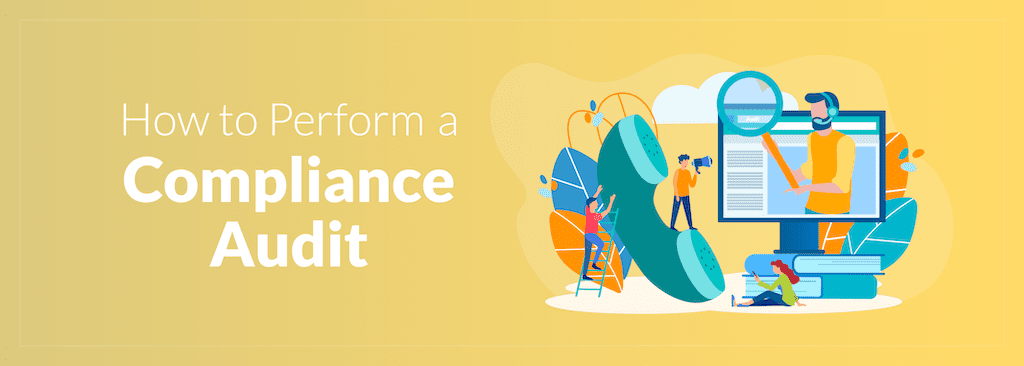How to Perform a Compliance Audit
Compliance audits can seem overwhelming and hard to unpack, but it’s extremely important for call centers to conduct audits as it is the first line of defense in terms of staying out of trouble with violations. In this webinar, a panel of compliance experts discusses everything you need to know for conducting a proper compliance audit.
What is a compliance audit?
A compliance audit involves using your call center’s compliance management system to identify areas of your operations that are in compliance or items that need to be addressed.
Every call center’s compliance management system should have three very important controls:
- Monitoring – Observations of your day-to-day activities.
- An audit program – Testing your company’s compliance with your policies and procedures against the state and federal laws (FDCPA audits, data update audits, etc.)
- Risk Assessment – Assessing what areas your organization is most likely at risk for, and areas to keep an eye on or audit more frequently.
How often should compliance audits be conducted?
How often a compliance audit should be conducted depends on the type of audit and the size of the organization. Some might be done monthly, weekly, quarterly, or annually depending on the risk threshold.
A good rule of thumb is, whenever you make a change — whether taking on new business, adding new technology, etc. — consider it an opportunity to check if you need new policies and procedures around that new change. Make sure that with whatever is changing, your operations are staying on track with compliance regulations.
When it comes to the frequency of your compliance audits, you have the freedom to set your own schedule. However, make sure that whatever schedule you set has a methodology, is consistent, and you can justify it.
You should know and be able to explain why you chose the frequency of your audits and have those reasons documented.
Find how to manage call center agents and stay compliant
Given the pending enactment of Regulation F, how should compliance audits be approached right now? How should that be implemented into your compliance process?
The new Regulation F rulings call for a very thorough gap assessment. The compliance date is set for November 30, 2021, with the potential to be extended until January 29, 2022. You need to build a compliance management system that incorporates these new rules for your organization, conduct a gap assessment, and audit against them.
In doing so, you do not need to go live with the new rules prior to the compliance date, but you can set up your entire system to see how it will work when it goes live in a test database. Everything in Reg F will be checked in examinations so it’s important to get started on implementing the rules into your compliance process. Right now is an essential time for you to identify where your gaps are and address those problems now.
What do you do with the results of a compliance audit?
Once you have your audit, it’s very important that you have a reporting structure of where it is going. You do not want your audit to be without a correction plan. It needs to go to your executive leadership team so they can understand the nonconformities that you’ve identified. Next, your organization needs to decide on corrective actions and identify clear steps of what to do to keep operations compliant.
TCN’s Compliance Suite is complete with tools to help call centers automate compliance rules and procedures. To learn more about how TCN can help keep your organization’s compliance in check, request a demo today.
